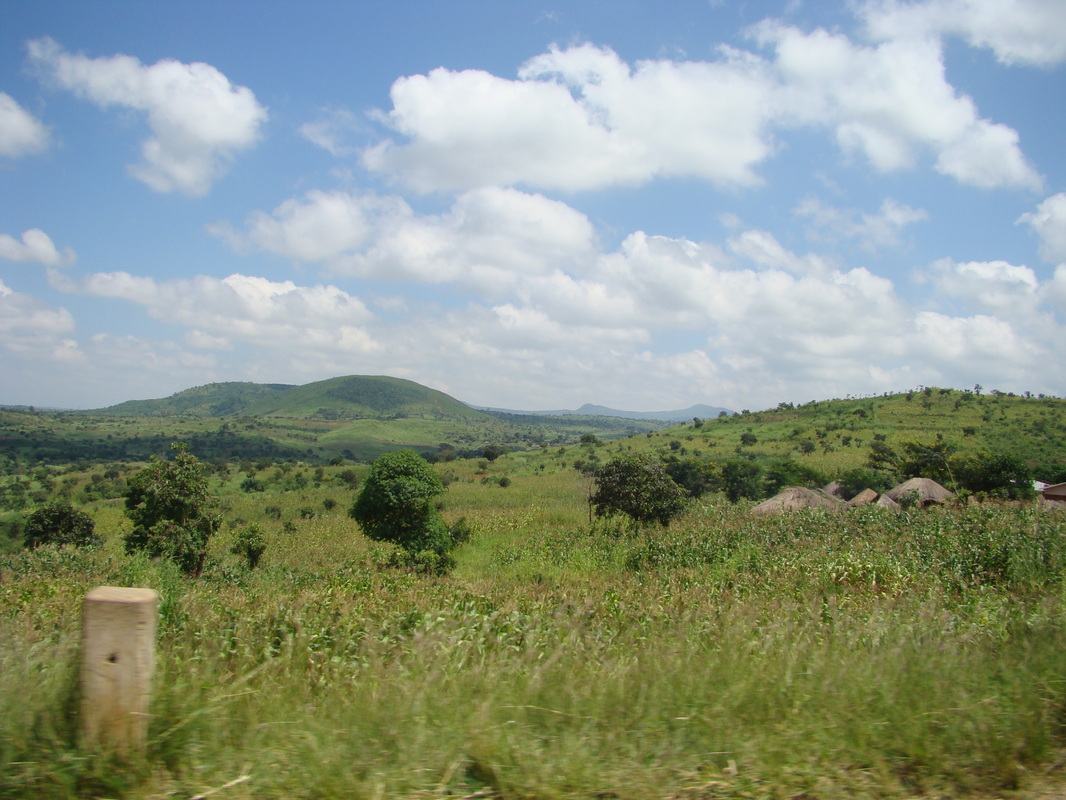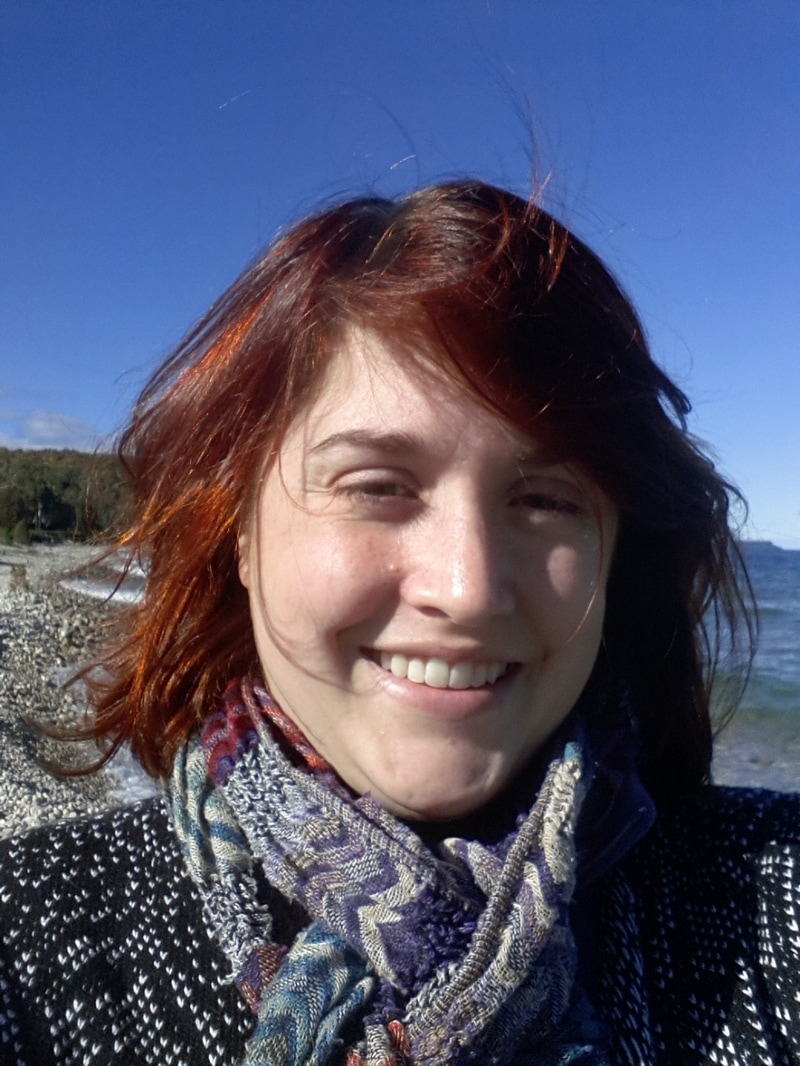|
A few friends have asked me what a typical day looks like for a refugee in Dzaleka, so I asked one of my friends if he would let me interview him and share it here on the blog. Our interview covered quite a few topics, and I think it will be an intriguing look into the culture of the camp for blog readers.
Theo is the head tutor and a graduate of the Jesuit Commons: Higher Education at the Margins program that JRS runs in Dzaleka. He is 27 years old, and originally from the Democratic Republic of the Congo, but left there in 2009 because of the civil war. What is a typical day like for a refugee? We get up in the morning, fetch water, cook, go to DSTV, DSTV is like where we go to watch games, movies, news. We go there any time of the day – it is not about wasting time – some people go to the library in the mornings, or go to the organizations like UNHCR and JRS to get updates. What is the most difficult part of life in Dzaleka? The most difficult part of daily life here is finding food to eat, because what WFP gives is not enough. Some people go to their fields, but there are not enough, so some people make arrangements with villages to use fields. So understand, it is just eating, sleeping, hanging around with friends, nothing really like, something to do. Thanks to new technologies we can get access to the internet on phones, but yeah, people can get bored. Everyone has the experience at some point where they have everything they need, food, a house, electricity, but you can’t enjoy it, you just think about those future questions – can you get more food, can you get out of this hell and get resettled. So some people, they tell me that when they experience this, they can either join a church or go to a bar. The majority do survive through relationships. If you have today, you need to give it away – for one reason – if you keep it, if you don’t share, you will need others’ help, so you need to invest in other people. When you are in contact with someone, though may not be happy about something, you meet others whose situation is worse, and you think to yourself, ‘I am doing fine’, and this way you can balance yourself. What do you do for fun? I watch movies, play basketball, or run. But I don’t really like to talk – I can enjoy what others are talking about, but to contribute, oh no. I don’t know if it is because I do so much talking here. I think I am a different person when I am here than when I am in camp, because when I am down there I am tired. I just want to listen to music, or I can sometimes go to a bar, but there I just want to be left alone – they can play music but I don’t want to do the talking. Do you have family? No. I just understand a family as any person around me. Like now, I am living with some young men, and that is my family. Do children grow up too quickly in camp or are they able to play and be children? I think it is both. Yah, they can play, and you can imagine, a kid, given 24 hours for games and playing they will never get tired – they just come home because they are hungry or because they want to sleep. So children from age 3 up to age 10 have fun, but upwards from there, it is not so much fun, because they can critically analyze what they are going through, that their needs are not met, and there is no one to blame – your mom and dad don’t have a job or work, they are just struggling to find something to eat. So you find that they are only satisfied with food, but other needs – no. And for women, for girls, you know what happens – some can get into prostitution so easily. It’s tricky; it is a very difficult situation. In a refugee camp, someone can grow and can guide his or her life how they want, but then you get the problem of how that person can support a family, or how their experiences impact their lives – so a man might go outside of his marriage to get sexually satisfied, and the young girls they will not ask much. And young men, again, they can’t date because they don’t have a job or whatever, and it is the easiest way to get satisfied, and it is an opportunity for the young girls to get satisfaction and good food. It is tricky to get those young girls to understand that there is nothing good in this, that it may be helping satisfy their needs and be a nice experience now, but it might not be in the future, but it is very difficult for them to understand that there is not hope (for a marriage). S that’s why you find like anything happening, most of the experience in camp is about relationship, but about tricky relationships – most of the adults doing business together can betray each other. You said that it is difficult for men to date in camp – is that cultural, or what are the reasons why this is? When we are talking about dating or getting married, it is all about love. But now it is difficult to talk about that here in a relationship – if you love someone, that is fine, but the first thing you need to do is satisfy their basic needs. And the culture here, the man is expected to provide almost everything, so now if you can’t, then it is a big issue. And you will find for those young women or girls, they are targeting someone who can support them. So now, the situation has changed, because you can’t choose, just your needs choose, so to be satisfied is difficult. Eighty or ninety percent of refugees are religious, and we try to really follow what the spiritual leaders tell us, but mainly what is seen, not so much wht is not seen. So if you go the market, you will find that most of the women with head coverings and a long dress – you can’t find a young girl wearing a short skirt or sleeveless shirts, so you can see that they are really following what the church leaders are telling them – so where are we getting those early pregnancies in teenagers? The majority of those teenagers have kids but are not married – they are still in the home – I cannot understand how this is happening, but again, I will note that it is just for the needs that they do what they are doing.
0 Comments
Leave a Reply. |
AuthorWelcome! My name is Katiana and I am a development professional pursuing my dream to live out Isaiah 1:17 to the best of my abilities. I am passionate about teaching and working with vulnerable families and children to improve their lives sustainably.
CaveatThis blog is composed of my personal opinions, which do not necessarily reflect the opinion or views of institutions or organizations that I may be or have been affiliated with.
Categories
All
Archives
July 2017
|



